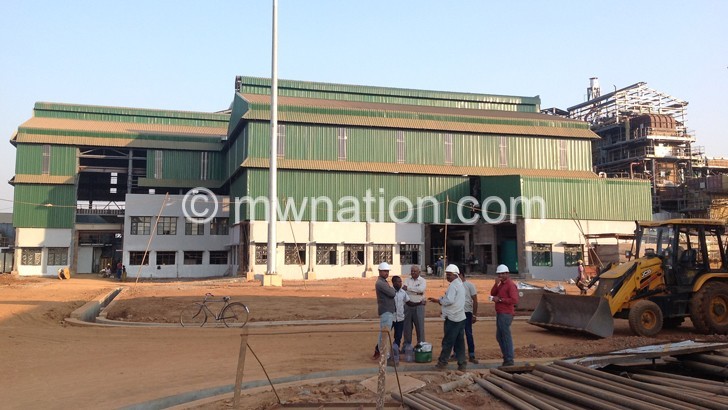In GBI, face of India emerges
A sugar processing facility here; an ethanol plant there and an electricity generating hub a glance away—all in one; an industrial complex tucked in a little village within Khombedza in Salima under the Green Belt Initiative (GBI) in which India is a leading financier.
The factory completion date—projected to be end this month when President Peter Mutharika is also expected to attend the third edition of India-Africa Forum Summit (IAFS) from October 26 to 29—should stand as a microcosm of what Africa and, Malawi in particular, can benefit from a resurgent India through stronger economic and political cooperation.

“Malawi and India have been strong partners for decades in terms of trade, economic cooperation and culture. Our investments in agriculture through GBI and other areas of cooperation are an example of just how much we can achieve together.
“The IAFS will be a crucial forum for Malawi and India relations and we will be happy to host President Mutharika in this context,” said Shri Vanlalhuma, India’s High Commissioner to Malawi, in an interview last week when asked about his country’s largest diplomatic outreach and how important it is for the India-Malawi ties.
The Salima factory has created 900 direct jobs so far, 500 of which are local people mostly from surrounding areas.
Already, right across the new factory’s main gate, a small, but booming market targeting project site workers is thriving, pointing to broadening multiplier effects of the investment.
The project is being financed with $33.64 million (over K18 billion) out of the $76.5 million (around K42 billion) Line of Credit (LoC) from the Government of India through its Export-Import (Exim) Bank in 2012.
It is situated less than five kilometres off the Salima-Nkhotakota Road to the right of Chikwawa Trading Centre, about 20 kilometres from Salima police checkpoint.
Besides the sugar processing plant, the LoC package includes $16.36 million (K9 billion) for GBI irrigation equipment and $26.5 million (K15 billion) for the construction of fuel storage facilities under the National Oil Company of Malawi (Nocma).
“It [the sugar factory] is a self-sustaining project whose impact around the area will be huge because of the many products to be produced here. For example, once the sugar cane has been crushed, there is a power plant right here to turn the burgess into three megawatts of electricity. The molasses will then be used to produce ethanol and even animal feed,” said Mohammad Hussain, senior manager for project execution at Apollo International Limited, the firm supplying and installing the sugar processing plant.
According to Hussain, the sugar machinery at Chikwawa will have the capacity to crush between 1 250 and 1 650 metric tonnes of sugar cane per day.
For GBI coordinator Henry Njoloma, the benefits of the project are immense at both local level in Salima and macro level.
“An important feature of this sugar processing plant is that it will be a major source of employment and income, thus providing access to food and other necessities to a large population in Malawi. The scheme and the sugar factory will bring rural development to Khombedza area in line with GBI aspirations of rural industrialisation, leading to development of rural growth centres,” he said.
And considering GBI’s export drive, the factory will also bring in foreign currency through sugar and ethanol exports.
Given that sugar production in Malawi is currently monopolised by one company—Illovo Sugar (Malawi) Limited—the coming of the new factory should also bring competition in the industry.
Farmers too are the major beneficiaries.
So far, about 250 farming households from Salima will benefit by producing sugarcane on two hectares each.
In addition, about 100 farming enterprises (medium-scale farmers) from across the country will benefit by producing sugar cane on 10 hectares each.
To effectively manage the project, government, in partnership with private investors, have created a joint venture company called Salima Sugar Company Limited.





